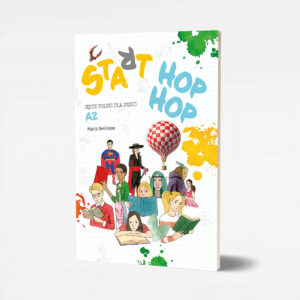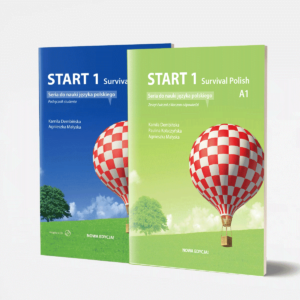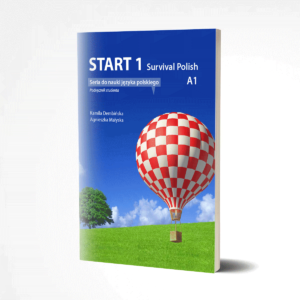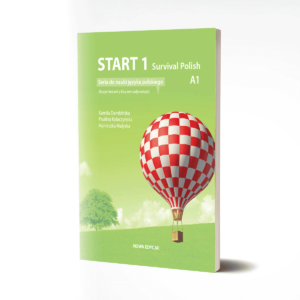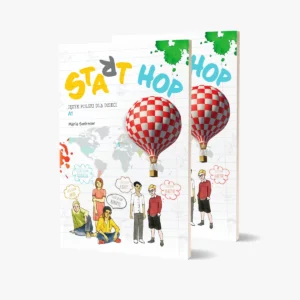Phraseological compounds occupy an important place in the curriculum for teaching Polish as a foreign language. Elements of phraseology should appear successively – the simplest forms of such expressions are introduced already at the elementary stage, while more complex expressions are learned in intermediate and advanced courses. Teaching foreigners Polish phraseology plays an important role in the learning process, since their correct recognition and skillful use is a key step on the way to achieving full communicative proficiency.
Phraseologisms – what are they?
Phrase compounds are examples of word combinations that consist of at least two words. The individual elements of such phrases cannot be changed or separated (they are fixed forms) – they have meaning as a whole and only in this form do they function correctly. Phraseologisms are strongly stabilized and fixed, as well as culturally interpreted and familiar to users of a given language. They have been functioning for a long time, since, according to tradition, they are passed down from generation to generation. It is typical for phraseological compounds to be figurative, so that the resulting content cannot be read literally. Using such figurative and metaphorical linguistic means in practice, it is possible to make an utterance more interesting, suggestive, attention-grabbing, emotionally charged. It is sometimes claimed that phraseological compounds fill in existing dictionary gaps, since they express much more than one-word terms.
The origin of phraseologisms
Polish phraseological compounds derive from various sources. For many of them the genesis is mythology and ancient culture (e.g. Trojan horse, Sisyphus’ work, Achilles’ heel, Pandora’s box, Ariadne’s thread, or Augias’ stable). Numerous phraseologisms have their origin in the Bible (e.g. Adam’s garb, Job’s news, Christ’s age, Judas’ silver, Solomon’s judgment, forbidden fruit, Egyptian plagues). There are also phraseological compounds that arise from specific historical events (e.g., the dice have been thrown, the Gordian knot, or Pyrrhic victory) or are associated with art or literature (e.g., Dantean scenes, wait for Godot, fight with windmills).
A source of inspiration for phraseologisms is also the mysterious natural world, i.e. flora and fauna. Therefore, a sizable group of such expressions includes at least the names of animals (e.g. to live with someone like a dog with a cat, to work for dog’s money, to have a cat’s moves, to fool someone, to feel like a fish in water, to have a wolf’s appetite, to put a pig in someone’s mouth, to be poor as a church mouse, to drive someone into a corner, to work like an ox, to get a monkey’s mind, to be blind as a mole, to go like a jay out to sea, to crane, to shed crocodile tears, or to have a snake in your pocket).
Some phraseological compounds are formulated as a result of observations of people’s daily lives and customs typical of the communities concerned. Hence there are terms referring to body parts such as eyes, ears, heart, head, hand (e.g., heart on hand, eyes wide open, do something on the knee, be alone like a finger, have a heart of stone).
Examples and meaning of phraseologisms from everyday life
Every person who learns Polish as a foreign language should realize that knowledge of phraseology is essential for efficient communication. In colloquial conversations with native speakers of the language, they are used extremely often, since many expressions of this nature relate to everyday life. Phraseologisms – what they are you already know, so now learn the meaning of some of the most popular phrases. Perhaps some of them will surprise you!
- The tenth water after Kisiel – a very distant affinity that is difficult to document,
- To lie like a liar – spontaneous deception, intentionally telling untruths without any prior preparation,
- To knock someone off their guard – to deprive the other person of the confidence they feel, to embarrass someone,
- stick a stick in an anthill – deliberately create confusion, agitation in a group of people, aiming for conflict,
- to kidnap oneself with a hoe in the sun – to engage in a very difficult task, exceeding one’s strength and individual capabilities, which one will not be able to perform,
- wake up with your hand in the night – finding yourself in a situation where it is too late to counteract what is wrong,
- A hard nut to crack – a complicated issue, a problem difficult to solve,
- To make someone’s heaven come true – heartfelt behavior towards another person, guessing their thoughts and fulfilling their innermost dreams, being kind to someone,
- in hot water bath – a term applied to a person impatient, impulsive, eager for impulsive, ill-considered behavior,
- Fifth wheel – a person who gets in the way of something or a completely unnecessary, undesirable object,
- Eat a barrel of salt with someone – getting to know the other person very well, resulting from having lived and experienced a lot together,
- straw enthusiasm – strong initial mobilization to do something, but which passes faster than it appeared,
- Blow the whistle – behaving with great caution and prudence, thinking about the future and taking preventive measures,
- walk like a Swiss watch – an activity characterized by qualities such as punctuality, accuracy and reliability,
- splitting hairs – pedantic even accuracy, above-average attention to detail,
- A professional of the seven cures – a person who works incompetently and performs his professional duties poorly,
- play first fiddle – to lead something, to have the most important role in some endeavor,
- Playing with fire – exposing oneself to danger, taking risks,
- To have an ace up one’s sleeve – having an argument up one’s sleeve to gain an advantage in the discussion,
- self-employed – doing something without the help of others and taking responsibility for it,
- Promise pears on a willow tree – making promises that are unrealistic and impossible to fulfill.
Are you learning the Polish language? Don’t forget to turn your attention to familiarizing yourself with phraseological compounds. This is an important component of the recipe for communicative success. Good luck!
